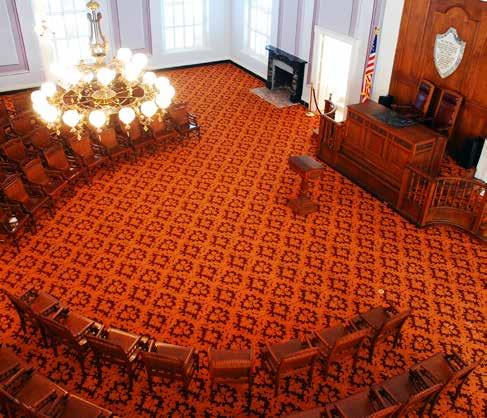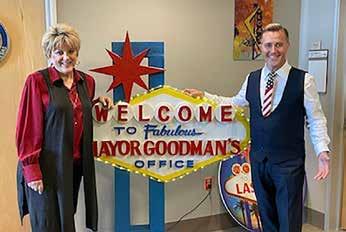
2 minute read
120-DAYS THAT IMPACT YOUR LIFE
By Lisa Mayo-DeRiso
On February 6, 2023, Nevada opened the 82nd session of the Nevada State Legislature. Did you mark your calendar? More than likely not, but these 120-days have a very direct impact on your life.
Before we discuss the reason this body of 63 elected leaders that most people cannot identify by name or by face is incredibly important, lets first look at who they are, what they do, and the power they enjoy.
The Nevada legislature meets every other year, in odd number years. The legislature can meet outside of that schedule if a special session is called. It has two chambers; the “lower” chamber (usually called the House or Assembly) and the “upper chamber” called the Senate. People elected to the Senate represent larger districts with more people than people elected to the House or Assembly.
The 10th Amendment to the Constitution outlines what kinds of matters state legislatures handle: “powers not delegated to the United States by the Constitution, nor prohibited by it to the states, are reserved to the states respectively, or to the people.” In other words, unless the Constitution explicitly grants a power to the federal government, it belongs to the states.
The legislature also acts as a check on the executive branch (that’s Governor Lombardo) and helps oversee state departments and agencies, like the Secretary of State and Nevada Department of Education.
Nevada legislatures have a zany variety of rules for drafting and passing bills. A Bill dies if no action by the committee passage deadline • First House: April 14 (68th day of Session) • Second House: May 19 (103rd day of Session). The session ends June 5, 2023 barring the calling by the Governor of a Special Session.
Five separate approvals are required for a bill to become law and bills must pass through both houses with identical language. Once passed, they go to the Gov- ernor to be signed into law. The Governor has five days to respond during the session, or 10 days if the session has ended, to sign the bill into law, ignore it, which would allow it to become law, or he can veto the bill.
Democrats hold a supermajority in the Assembly and the Senate is one short of a super majority. This is important when it comes to the veto of a bill by the governor. If the governor veto’s a bill, the bill returns to the original house that put it forward. The legislature can override the Governor’s veto by a two-thirds vote in both houses. Democrats in the State Assembly have a supermajority. But in the State Senate, Democrats are one person short of the two-thirds supermajority, so they would need one Republican to vote on their side.
The statistics of bills in the 82nd legislative session are as follows:
• 1,024 Bill Draft Requests
• 922 of those BDR’s became Bills
• As of May 19, 2023 the Second House passage deadline, 512 bills were still alive.
• 6 Assembly Resolutions and 3 Senate Resolutions
• 10 Assembly Joint Resolutions and 8 Senate Resolutions
Nevada Policy Research Institute provides a bill tracker that keeps watch on proposed legislation. In the 2023 legislative session, they tracked 121 bills of the 512. They supported 50, were neutral on 7 and opposed 64. You can check out the reasoning here for their positions on these bills: npri.org/bill-tracker.
Why and how the ‘Gang of 63” impact your daily lives, is due to the fact that they work to pass laws that are introduced by a wide variety of governments, businesses, special interest groups and associations. However, by the time you read this, the 83rd session of the Legislature is probably over. MV











